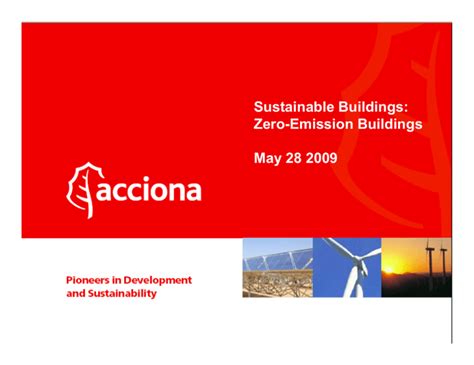A. G. Mendoza Akerman is a renowned figure in the field of sustainable development, having dedicated decades to promoting innovative strategies and solutions for a greener future. His visionary leadership and groundbreaking contributions have earned him global recognition and accolades.

Early Life and Education
Born in Caracas, Venezuela, Mendoza Akerman’s passion for environmental stewardship emerged at an early age. He pursued studies in environmental science and engineering at the University of California, Berkeley, where his academic brilliance and dedication to sustainability were evident.
Career and Achievements
Upon graduating, Mendoza Akerman joined the World Bank, where he spearheaded several groundbreaking initiatives to address environmental challenges in developing countries. His work focused on promoting renewable energy, reducing deforestation, and developing innovative financing mechanisms for sustainable projects.
In 2007, Mendoza Akerman established the Global Sustainable Development Network (GSDN), a pioneering non-profit organization dedicated to connecting experts, policymakers, and practitioners from around the world to share knowledge and accelerate sustainable development progress. Under his leadership, the GSDN has emerged as a leading platform for collaboration and innovation in the field.
Key Contributions
Mendoza Akerman’s contributions to sustainable development are extensive and transformative, spanning various sectors and regions.
Renewable Energy
Mendoza Akerman has played a pivotal role in promoting renewable energy adoption worldwide. He has led initiatives to increase investment in solar and wind power, while advocating for policies that incentivize the shift from fossil fuels to clean energy sources.
Climate Adaptation
Recognizing the urgent need to address the impacts of climate change, Mendoza Akerman has spearheaded efforts to enhance resilience and build adaptive capacity in vulnerable communities. His work focuses on developing early warning systems, improving water resource management, and promoting climate-smart agriculture.
Biodiversity Conservation
Mendoza Akerman is a staunch advocate for the protection and restoration of biodiversity. He has led campaigns to conserve endangered species, protect marine ecosystems, and reduce the impact of human activities on natural habitats.
Awards and Recognition
Mendoza Akerman’s exceptional contributions have been widely recognized by international organizations and governments.
- In 2015, he received the prestigious Zayed International Prize for the Environment for his outstanding work in sustainability.
- In 2018, the United Nations Development Program (UNDP) appointed him as a Goodwill Ambassador for Sustainable Development.
- In 2021, the World Economic Forum selected him as a Young Global Leader for his innovative leadership in the field.
Strategies for Sustainable Development
Mendoza Akerman believes that effective sustainable development requires a holistic approach that involves collaboration, innovation, and long-term thinking. He advocates for the following strategies:
- Multi-stakeholder Engagement: Foster partnerships between governments, businesses, civil society organizations, and communities to collectively address sustainability challenges.
- Data-Driven Decision-making: Use robust data and evidence to inform decision-making processes, ensuring that policies and interventions are based on a sound scientific foundation.
- Innovative Solutions: Encourage research and development of cutting-edge technologies and approaches that can accelerate progress towards sustainability goals.
- Capacity Building: Empower individuals and communities with the knowledge and skills needed to promote sustainable practices and contribute to a greener future.
Tips and Tricks for Sustainability
Mendoza Akerman offers several practical tips and tricks for individuals and organizations to embrace sustainability in their daily lives and operations:
- Reduce Energy Consumption: Switch to energy-efficient appliances, improve insulation, and utilize renewable energy sources whenever possible.
- Conserve Water: Install low-flow fixtures, practice water conservation techniques, and consider rainwater harvesting systems.
- Reduce Waste: Implement comprehensive waste management programs, promote recycling and composting, and choose products with minimal packaging.
- Promote Sustainable Transportation: Walk, bike, or use public transportation whenever feasible, and consider electric or hybrid vehicles for long-distance travel.
Common Mistakes to Avoid
Mendoza Akerman cautions against common pitfalls that can hinder progress towards sustainability:
- Focusing on Short-term Gains: Prioritizing immediate profits or benefits over long-term sustainability goals can lead to unintended consequences.
- Overdependence on Technology: While technology can be a powerful tool for sustainability, it should not replace human ingenuity and collective action.
- Lack of Stakeholder Engagement: Failing to involve key stakeholders in decision-making processes can undermine the effectiveness and legitimacy of sustainability initiatives.
- Inadequate Data and Evidence: Making decisions based on incomplete or unreliable information can lead to ineffective or even harmful policies and interventions.
Conclusion
A. G. Mendoza Akerman is an extraordinary visionary and a tireless advocate for sustainable development. His pioneering work has significantly contributed to global efforts to address environmental challenges and build a greener, more prosperous future. By embracing his strategies, tips, and tricks, individuals and organizations alike can make a meaningful difference in the pursuit of sustainability. As Mendoza Akerman reminds us, “The future we create depends on the choices we make today.”












